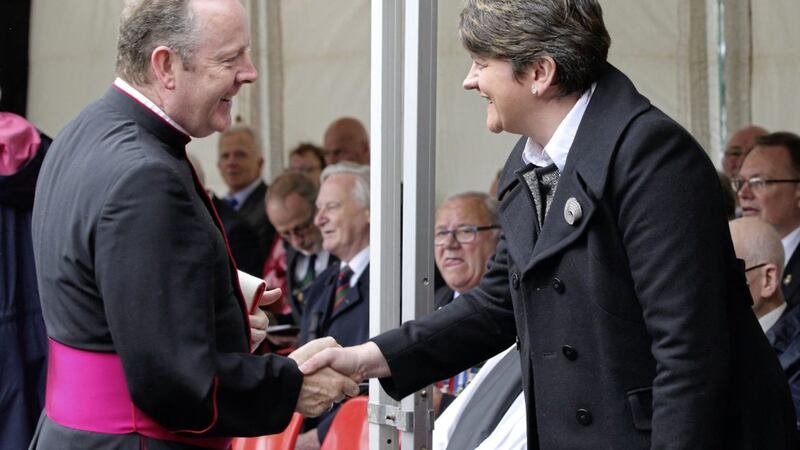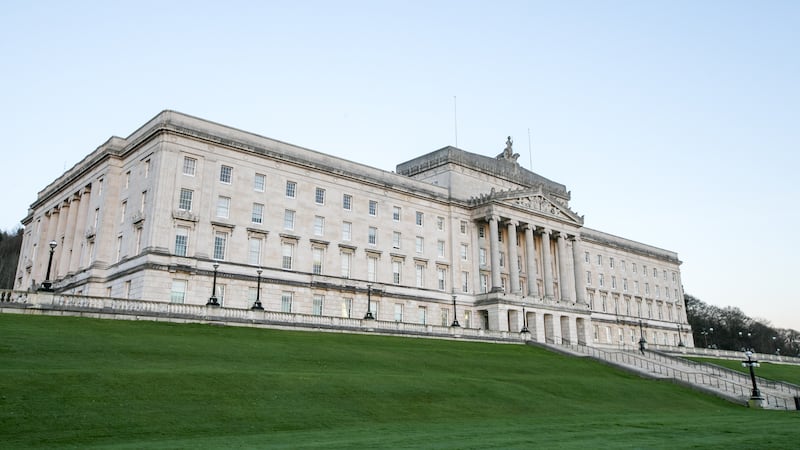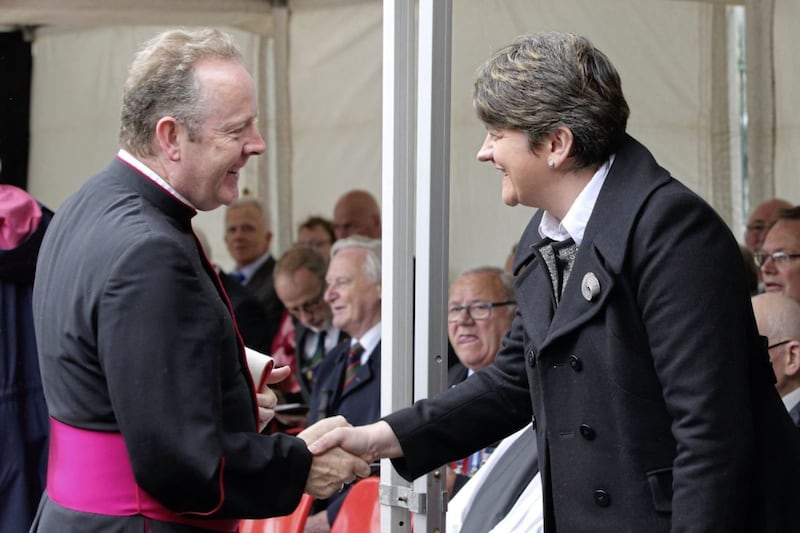POLITICIANS from across Ireland attended a ceremony yesterday to mark the centenary of a First World War battle in Belgium where unionist and nationalist soldiers fought side by side in the trenches.
The Republic's arts minister Heather Humphreys, DUP leader Arlene Foster and church leaders including Archbishop Eamon Martin were among those who commemorated the week-long Battle of Messines.
Ms Humphreys laid a wreath at Armagh's war memorial on behalf of the Irish government.
The Battle of Messines Ridge was the first time soldiers of the 36th Ulster and 16th Irish divisions fought together on the front line. The two divisions predominantly comprised men who were on opposing sides of the fight for Irish independence.
Yesterday's commemoration came just days after a separate centenary commemoration at the Island of Ireland Peace Park in Belgium.
Ms Humphreys said the commemorations "present a significant opportunity for furthering the processing of reconciliation and peace-building, as we reflect upon the spirit of kinship embodied by those men who fought and died side by side".
"Today's commemoration is set in the context of significant State commemorations this year at home and abroad to mark the key events of the First World War in 1917 and to reflect upon the complex narratives surrounding Ireland's participation in that war," she said.
"Almost every community on the island of Ireland was affected by these events and the Decade of Centenaries has provided a new opportunity to remember those who fought and died and their complex and interwoven histories."





